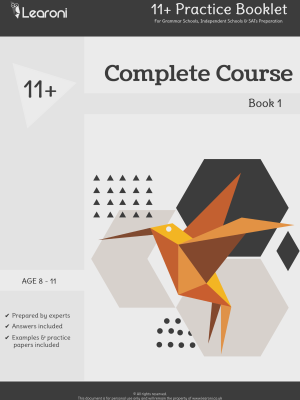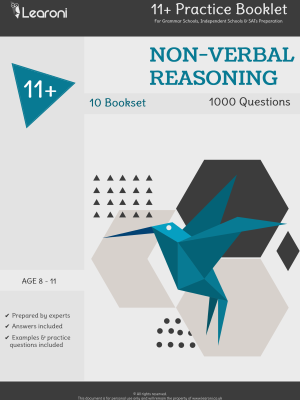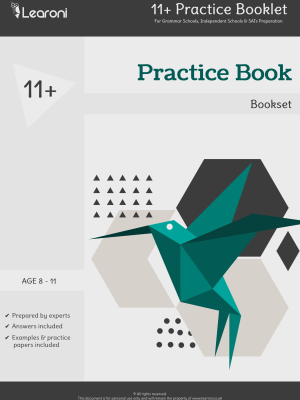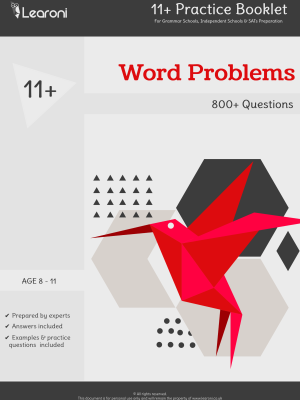11 Plus Exam – The Ultimate Guide for Parents
Introduction
Starting the 11+ journey as a parent can feel overwhelming, especially if it’s your first time. If your child is preparing for this demanding exam, it’s completely normal to have worries. You might be concerned about how ready they are academically, whether they’ve learned what they need to succeed, or if they’re missing key knowledge in some subjects or topics. Don’t worry—this complete guide covers everything you need to know, from exam structure to preparation tips, in a simple and easy-to-follow way. Key takeaways- Students aiming to enter grammar schools typically sit the 11 Plus exam during the autumn term of Year 6.
- The 11 Plus assessment often covers English, mathematics, verbal reasoning, and non-verbal reasoning; however, the specific subjects can differ depending on the school.
- These exams are taken on paper, usually last about 2 hours, and are mostly made up of multiple-choice questions.
- The 11 Plus is a tough test. It’s meant to pick out children who are working at the highest level in their year group.
- The best way to prepare is by learning in small steps and regularly using 11 Plus practice papers to check understanding.
What is the 11 Plus Exam?
The 11 plus (11+) entrance exam, commonly referred to as the 11+, is used by grammar schools and certain selective independent schools across the UK as part of their admissions process.
It’s taken at the beginning of Year 6, and the results determine whether a child gets a place at a selective secondary school.
Key facts about the 11 Plus:
- Taken by students in England and Northern Ireland (not Scotland or Wales).
- Used mainly for grammar school entry, but some private schools also use it.
- It generally consists of four main areas: English, Maths, Verbal Reasoning, and Non-Verbal Reasoning.
- Exam format varies by region—some areas have different test providers (e.g., GL Assessment, CEM, or school-specific papers).

Which schools use the 11 Plus Exam?
Not all schools require the 11 Plus Exam. Here’s how it works:
1. Grammar Schools
- State-funded but selective (only accept students who pass the 11 Plus).
- Found in certain regions like Kent, Buckinghamshire, Essex, and Birmingham.
- Some grammar schools are highly competitive (e.g., Queen Elizabeth’s in Barnet or The Latymer School in London).
2. Selective Independent (Private) Schools
- Some private schools use the 11 Plus Exam as part of their entrance process.
- Often include extra tests or interviews.
3. Bilateral & Partially Selective Schools
- These schools take some students based on the 11 Plus and others based on catchment areas.
💡 Check your local council’s website to see which schools in your area use the 11 Plus.
What’s included in the 11 Plus Exam?
What’s in the 11 Plus Exam depends on the grammar school your child is applying to. Some schools are part of a consortium, meaning they all use the same test. Others have their own test that’s only for that school.
If you’re applying to several grammar schools in the same consortium, your child just needs to sit one exam for all of them. But if you’re applying to schools that aren’t in a consortium, your child will need to take a separate 11 Plus Exam test for each one.
The 11 Plus Exam usually tests four key subjects:
1. English
The English component may assess comprehension, spelling, grammar, punctuation, and vocabulary skills. Some exams also include creative writing, where your child is asked to write a short story or a description.
- Reading comprehension (answering questions about a passage).
- Vocabulary (synonyms, antonyms, word meanings).
- Creative writing (not always tested, but some schools include it).
2. Maths
The maths section is based on Key Stage 2 content and tests your child’s ability to solve problems using numbers. It covers topics like arithmetic, fractions, percentages, measurements, and word problems, often with a focus on logical thinking and accuracy.
- Arithmetic (fractions, percentages, decimals).
- Problem-solving (word problems, multi-step calculations).
- Reasoning (logical thinking, number patterns).
3. Verbal Reasoning (VR)
Verbal reasoning measures how well your child understands and uses language. It involves solving problems using words, letters, and numbers—such as finding patterns in letter sequences, choosing related words, or understanding analogies.
- Word puzzles (e.g., “Find the odd word out”).
- Codes & sequences (e.g., “If A=1, B=2, what is C?”).
- Logical thinking (e.g., “Which word completes the sentence?”).
4. Non-Verbal Reasoning (NVR)
Non-verbal reasoning evaluates a child’s ability to interpret and solve problems using visual patterns and shapes. It includes identifying patterns, shapes, and sequences in pictures or diagrams, and is designed to assess logical thinking without relying on language.
- Shape patterns (identifying the next shape in a sequence).
- Spatial awareness (rotating shapes in your mind).
- Odd one out (finding the shape that doesn’t belong).
11+ Ultimate Bundle (Learn & Practice)
11 Plus Non-Verbal Reasoning Book set (NVR)
Complete 11+ Practice Books Set – 50 Books for Maths, English, Reasoning
11 Plus Exam Formats
The format of the 11 Plus Exam depends on which company creates the test.
More than 80% of grammar schools in England use exam made by GL Assessment. A few schools use tests by FSCE instead.
11 Plus Exam GL Assessment
The GL Asseessment refers to a specific type of entrance exam used by many grammar schools in England to select pupils for Year 7 (entry at age 11). The “11 Plus” stands for the age students are typically tested, and GL Assessment is one of the main providers of these tests.
Key Elements of the 11 Plus GL Assessment:
GL Assessment tests usually cover four core subjects, although the specific combination can vary by region or school:
- English
- Focuses on comprehension, vocabulary, spelling, grammar, and punctuation.
- May include reading passages followed by questions.
- Mathematics
- Based on Key Stage 2 curriculum (up to Year 6 level).
- Covers arithmetic, problem-solving, and reasoning.
- Verbal Reasoning
- Tests logic and understanding of language patterns.
- Includes questions on word codes, analogies, and sequences.
- Non-Verbal Reasoning
- Assesses visual-spatial reasoning and pattern recognition.
- Involves shapes, sequences, and image-based logic.
Additional Key Points:
- Format: Usually multiple choice.
- Duration: Each paper lasts around 45 to 60 minutes.
- Scoring: Standardised scores are used to account for age differences.
- Preparation: Practice papers, familiarisation materials, and tutoring are common.
What is the FSCE 11 Plus Exam?
FSCE stands for Future Stories Community Enterprise. It’s a not-for-profit organisation that provides 11 Plus exam for a few grammar schools in England. The FSCE 11 Plus test is designed to assess a child’s academic potential in a fair and accessible way, especially for children from all backgrounds.
Key Elements of the FSCE 11 Plus Exam:
- Subjects Covered:
The FSCE test usually includes English and maths, with a strong focus on reasoning and problem-solving. - Question Style:
The questions are designed to go beyond just memorising facts. They test how well a child can think, reason, and apply what they know in new situations. - Written Format:
Unlike many other 11 Plus tests, FSCE exams are not always multiple choice. Some questions may require written answers, especially in the English section. - Unfamiliar Contexts:
FSCE tests often include tasks in unfamiliar formats to see how children cope with new challenges, rather than relying only on what they’ve been directly taught. - No Specific Practice Papers:
FSCE does not publish official practice papers. This is to encourage fairness and reduce the advantage of intensive tutoring.
When is the 11 Plus Exam?
Most 11 Plus exams are held in September of Year 6, with the results usually released the following month, in October.
The 11 Plus Exam is only used in England. Grammar schools don’t exist in Scotland or Wales. In Northern Ireland, the 11 Plus Exam was stopped in 2008 and replaced with what’s now called the Transfer Test.
Grammar schools usually share their 11 Plus Exam dates during the summer term of Year 5.
📅 Typical timeline:
- Year 4 (optional prep): Light practice to build skills.
- Year 5 (main prep): Focused study, mock tests.
- September (Year 6): Exam taken.
- October (Year 6): Results come out.
- March (Year 6): National Offer Day (school places announced).
💡 Start early! Many students begin 1-2 years before the exam.
Who Can Take the 11 Plus Exam?
Any child who wishes to apply to a grammar school is eligible to take the 11 Plus exam.The test is generally taken during the autumn term of Year 6, when students are around 10 or 11 years old.
However, eligibility isn’t the same for every school. Many grammar schools have strict catchment areas, meaning your child must live within a certain distance to be considered. Even if your child passes the 11 Plus Exam with flying colours, living outside the catchment area could affect their chances of getting a place.
To take the exam, you must register your child in advance. Each grammar school or local authority sets its own registration window—some begin as early as the spring term of Year 5, while others open in the summer.
We strongly recommend checking the key dates and admissions criteria for each of your chosen grammar schools early on, to avoid missing any deadlines.
How to Apply for the 11 Plus Exam?
To enter your child for the 11 Plus Exam, you’ll need to register directly with each grammar school (or consortium) you’re interested in. Grammar schools have strict registration deadlines, so it’s important to mark them in your calendar and check each school’s website regularly.
The first step is to complete a registration form, sometimes referred to as a Supplementary Information Form (SIF). You’ll be asked to provide key details such as:
- Your child’s full name and date of birth
- Your home address
- Your child’s current primary school
- Parent or guardian contact information
You can usually fill out the form online or download it directly from the school’s or local authority’s website.
Some grammar schools are part of consortiums, which means they share the same entrance test. For example, all grammar schools in Gloucestershire use the Gloucestershire Grammar Schools Entrance Test. If you’re applying to multiple schools within the same consortium, you may only need to submit one registration form. However, if you’re applying to schools outside of a consortium, you’ll need to complete a separate form for each school.
After your child sits the exam in the autumn of Year 6, you’ll typically receive their results in October. If they achieve a qualifying score, you can then apply for a place by submitting a secondary school Common Application Form (CAF) through your local authority.
How to prepare for the 11 Plus Exam?
Success in the 11 Plus requires consistent preparation, regular practice, and a clear understanding of the exam format. With consistent effort and the right support, your child can approach the 11 Plus Exam feeling confident and well-prepared.
1. Understand the Exam Format
Understand the Test Format Know which subjects will be tested (English, Maths, Verbal Reasoning, Non-Verbal Reasoning). It’s important to verify the specific exam structure used by the schools you are applying to.
- Check which test provider your local schools use (GL, CEM, etc.).
- Look at past papers to see question styles.
2. Create a Study Plan
Start Preparation Early, Begin preparing in Year 4 or early Year 5. A ‘little and often’ approach is most effective, focusing on regular, targeted study sessions.- Daily practice (20–30 mins per subject).
- Weekly mock tests (to check progress).
- Focus on weaknesses (e.g., if VR is tough, spend extra time on it).
3. Use the Right Resources
Choose effective study resources that closely match the style and difficulty level of the 11 Plus exam.
- Identify and Strengthen Weak Areas.
- Focus on topics your child finds challenging.
- Regularly review mistakes and practice targeted exercises.
See how our complete learn and practice books can help you prepare for the 11 plus exam.
4. Build Exam Skills
Build Strong Exam Techniques Teach your child to manage time effectively, stay calm under pressure, and approach tricky questions with confidence. Maintain a Positive Mindset, encourage your child to focus on progress rather than perfection. Remind them that learning is a journey.
- Time management (practice timed tests).
- Guessing wisely (some exams deduct marks for wrong answers).
- Staying calm (mock exams help reduce stress).
5. Practice
Take mock tests and simulate real exam conditions with timed mock tests to help your child build confidence and improve performance.
6. Get ready for the exam day
Be prepared for exam day and check all exam details (time, location, rules) in advance to avoid last-minute stress.
11+ Ultimate Bundle (Learn & Practice)
View Sample Learn Book View Sample Practice Book
The most comprehensive 11+ preparation course to boost your child’s chances for a place at most of the selective Grammar and Independent Schools. The course covers all major areas of the 11+ exam:- English
- Maths
- Vocabulary
- Verbal Reasoning
- Non-verbal Reasoning
- Comprehension
Checkout detailed list of subjects covered
This is a complete course to assist your child in building the skills required to prepare for the 11+ exam. Your child can benefit from this course to:- prepare for the 11+ exam to get a place at the most selective grammar schools.
- get a place at the most selective independent schools.
- boost your child's confidence to achieve top sets at their secondary school.
- increase your child's chance to qualify for important scholarships and bursaries.
11+ Word Problems Practice Book
- 800+ meticulously crafted word problem questions
- Comprehensive coverage of a wide range of topics
- From basic arithmetic to advanced mathematical concepts
When is 11 Plus Exam Results?
Results are generally announced in October of Year 6, well in advance of the secondary school application deadline on October 31st.
These results are usually sent to parents via email by the school where they registered their child for the exam.
Upon receiving your child’s 11 Plus Exam results, you may not receive a detailed score breakdown. Instead, the school generally provides information indicating whether your child is eligible or not eligible for a place.
This eligibility status helps parents understand whether their child has met the required standard for admission to the chosen school.
11 Plus Exam pass marks: What’s a good score?
There’s no fixed pass mark—it depends on:- Competition (some schools need 90%+, others 70%).
- Standardisation (scores are adjusted based on age and difficulty).
- Below 70%: Unlikely to pass in competitive areas.
- 70-85%: Possible pass in less competitive schools.
- 85%+: Strong chance at top grammar schools.
Can my child resit the 11 Plus exam?
In most cases, your child will only have one opportunity to take the 11 Plus Exam. If they do not achieve the required score, they will not be able to retake the test for the same school in the same academic year.
However, if your child is applying to multiple schools with separate 11 Plus Exams, they may have the chance to take more than one test. For instance, grammar schools in different areas often use different exams. As a result, children applying to various grammar schools might sit for multiple tests as part of the admissions process.
If your child is reapplying for entry in a later year (to a higher year group), some schools may allow them to retake the exam. It is always best to check with individual schools or local authorities for their specific policies.
If the 11 Plus Exam did not go as expected, try to focus on what your child can learn from the experience. Remember, every child develops at their own pace, and there are always alternative pathways to success.
Final Tips for Parents
✅ Stay positive (stress makes learning harder).
✅ Make learning fun (games, rewards, and breaks help).
✅ Don’t overdo it (burnout hurts performance).

















